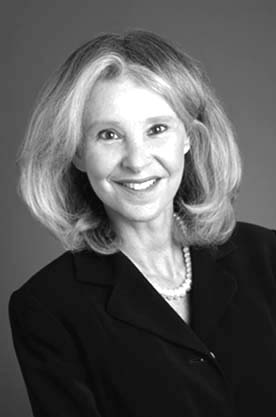National Task Force Chaired by TC's Kagan Issues New Recommendations on Pre-K Policy
The National Early Childhood Accountability Task Force has released its final report and recommendations for developing a comprehensive assessment system to improve the performance of early education programs. Over the past four years, states have invested more than $1.9 billion in preschool to improve outcomes for children, but few have implemented a comprehensive effort for assessing and improving performance to ensure that early education returns intended results. The Task Force's recommendations are flexible enough to be adapted in multiple states, employ state-of-the-art evaluation methods and focus on how assessment data can be used to help improve program performance and enhance positive outcomes for children. Over the next 18 months, the Council of Chief State School Officers, with funding from The Pew Charitable Trusts, will use the Task Force's finding to help states document and strengthen preschool program performance.
"By their very nature, early childhood programs are difficult to assess," said TC faculty member Sharon Lynn Kagan, Task Force Chair and the College's Associate Dean for
"Currently there are no comprehensive system in place guiding early educators and policy makers as they expand preschool programs in their state," said Sue Urahn, managing director of Pew's Center of the States. "Without a consistent means of measuring results and evaluating practices, states have no way of identifying successful practices in programs that work, or of helping to improve programs that don't.
Launched in 2005, the Task Force is comprised of 15 testing experts and state officials with on-the-ground experience running early learning programs in
To address the challenges, the Task Force recommends that states should:
- Develop a unified system of early childhood education that includes a single, coherent system of standards, assessment, data and professional development efforts across all programs and funding streams.
- Align high-quality and comprehensive standards, curriculum, instruction, and assessment as a continuum from prekindergarten through grade three.
- Assure that all child and program assessments use valid and reliable instruments that are well suited for their intended purposes.
- Support the full inclusion of all children in accountability and improvement efforts, including children who speak English as a second language and disabled children.
- Provide adequate resources to enable programs to meet performance standards and to support accurate, credible and useful assessments and effective program improvement efforts.
Based on these core recommendations, the Task Force designed four approaches that states can use to collect data and report on program performance and child learning. These different approaches allow states to customize an accountability system to meet their particular needs. For example, one methodology would be appropriate if a state simply wants to know how many children are ready for kindergarten, without determining the effectiveness of particular preschools. More complex options assess the quality for each local program, and the effectiveness and impact of specific types of state investments. The report describes each approach in detail, including specific policy questions it address, what data are to be collected, designs for data collection, how assessment information can be used to improve programs, and key challenges and safeguards that need to be adopted to prevent misuses of assessment information.
"Our report tackles the most controversial issues in early childhood assessment," said Eugene Garcia, Task Force vice chair and vice president for Education Partnerships,
"As prekindergarten expands, policymakers and the public will shift their focus to making sure that children and prepared to read, think, compute, learn self-control and how to work with their peers and adults by the end of the Third Grade. Being ready for Kindergarten is just not enough," said Fasaha Traylor, Senior Program Officer of the Foundation of Child Development. "The National Early Childhood Accountability Task Force sets our nation on that path."
In upcoming months the Council of Chief State School Officers (CCSSO), with support from The Pew Charitable trusts, will help expand awareness of the Task Force's recommendations among early childhood leaders and help states strengthen their ability to assess and improve preschool programs.
"Once implemented, the Task Force's recommendations will not only improve early education programs but will also connect and integrate preschool and public school standards, data and professional development efforts," said Gene Wilhoit, executive director of CCSSO. "We are excited to begin working with states to move the Task Force's ideas into action."
"State-funded preschools are expanding to reach more children every year, and state legislators and governors and demanding more information about the quality of these programs, " said Ellen S. Alberding, president of the Joyce Foundations. "The Task Force recommendations should help improve accountability and, ultimately, help ensure that we are providing first-rate early learning opportunities for our children."
Task Force members and project staff include:
Sharon Lynn Kagan (Ph.D.), Task Force Chair, Professor and Associate dean for Policy, Teachers College, Columbia University, New York, NY and Professor Adjunct, Yale University, New Haven, CT
Eugene Garcia (Ph.D), Task Force Vice-Chair, Vice President for Education Partnerships,
W. Steven Barnett (Ph.D.), Director, National Institute for Early Education research and Professor, Rutgers, The State University of New Jersey, New Brunswick, NJ
Barbara Bowman (Ph.D.), Director, Office of Early Childhood Education, Chicago Public Schools and Professor, Erickson Institute, Chicago, IL
Mary Beth Bruder (Ph.D.), Professor of Pediatrics,
Lindy Buch (Ph.D.), Director, Office of early Childhood Education and Family Services, Michigan Department of Education, Lansing, MI
Maryann
Harriet Dichter, Deputy Secretary, Office of Child Development and Early Learning, Pennsylvania departments of Education and Public Welfare, Harrisburg, PA
Mark Friedman, Executive Director, The Fiscal Policy Studies Institute,
Jacqueline Jones (Ph.D.), Assistant Commissioner, Division of Early Childhood Education, New Jersey State department of Education, Trenton, NJ
Joan Lombardi (Ph.D.), Director, The Children's Project,
Samuel Meisels (Ph.D.), President, Erickson Institute, IL
Marsha Moore, Commissioner,
Robert Pianta (Ph.D.), Professor,
Donald Rock (Ph.D.), Senior research Scientist, Educational Testing Service,
Thomas Schultz (Ph.D.), Project Director, The Pew Charitable Trusts,
Debi Khasnabis, Research Assistant,
Published Wednesday, Oct. 31, 2007
